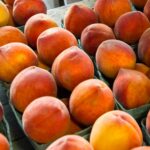"Aussie diets fail the test", CSIRO survey shows

The largest ever survey of its kind reveals Australians may not be as healthy as previously thought, highlighting an excessive consumption of junk food and not enough fresh vegetables.

The average Australian still isn't reaching the benchmarks set for fruit and vegetable consumption. Photo: www.shutterstock.com
The Commonwealth Scientific and Industrial Research Organisation (CSIRO) and the University of South Australia developed the online survey-based 'The Healthy Diet Score' that customizes recommendations based on individual responses.
With more than 86,000 people surveyed, the national average diet score has been rated as 59/100.
"We have an image of being fit and healthy, but with a collective diet score of 59/100 that image could be very different unless we act now," CSIRO Research Director and co-author of the CSIRO Total Wellbeing Diet, Professor Manny Noakes said.
Around 80% of respondents received an individual score below 70, which is a benchmark figure for a healthy diet.
"If we can raise our collective score by just over 10 points, we help Australia mitigate against the growing rates of obesity and lifestyle diseases such as heart disease, Type 2 diabetes and a third of all cancers," Noakes said.
"All people need to do is halve the bad and double the good. In other words, halve the amount of discretionary food you eat and double your vegetable intake."
Australian readers can take the test here.
The result for the Australian population may in fact be worse than the indicated figure as well, given 72.9% of respondents were women and the fact male respondents had lower scores.
The survey also shows better diets for older demographics, and in terms of professions the best scores went to health professionals and the retired.
Respondents who avoided either gluten, dairy or meat tended to have higher scores, along with those who ate fewer discretionary foods such as chocolates, cakes, chips, processed meat, takeaway food, sugar sweetened beverages and alcohol.
When it comes to fresh produce, women scored 73 on vegetables while the figure was just 61 for men, while fruit intake was slightly better at 69 for women and 67 for men.
Headline photo: Pexels











































